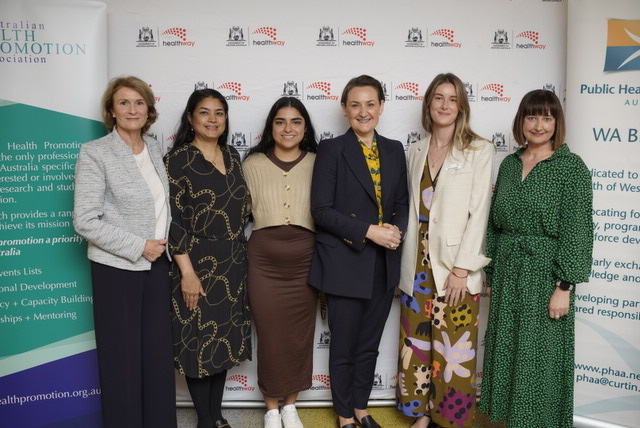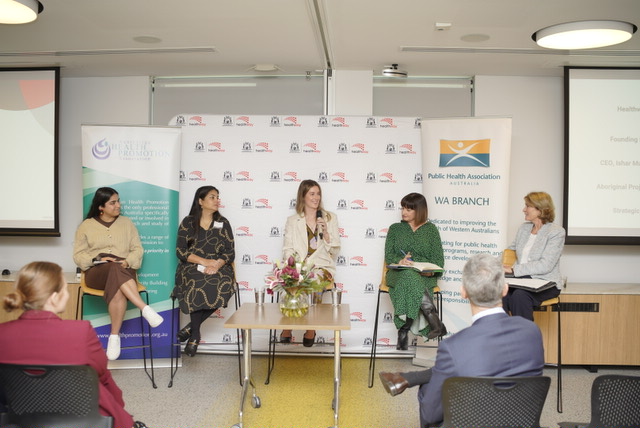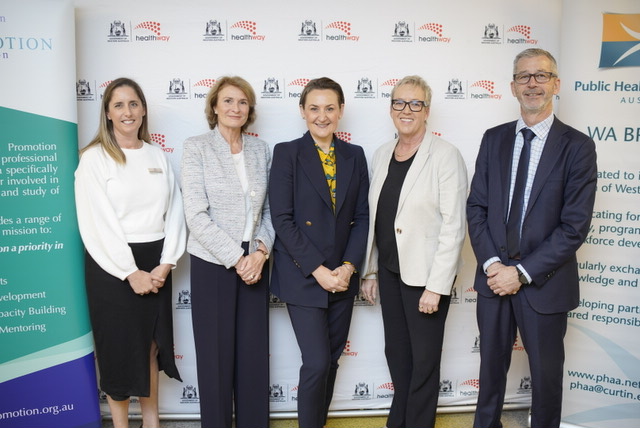


Healthway in partnership with the WA branches of the Australian Health Promotion Association and Public Health Association of Australia held an event today to celebrate the launch of Women in Public Health in WA.
The event highlighted the ongoing health inequities experienced within the public health profession, amplified women’s voices and facilitated connections among women to advance public health across research, policy, health, and beyond the health sector.
In WA, the women’s workforce participation rate is at its highest ever, at 64.5%. The State Government is dedicated to ensuring that women’s unique skills, achievements, and strengths are valued, enabling them to participate equally, including at leadership levels. The latest figures show that women have a 52.5% representation on all WA State Government boards and committees, the highest on record for WA.
However, in public health we know anecdotally women are significantly under-represented in leadership with the sector lagging behind others in terms of gender equity.
To push for change across the country, the Women in Public Health initiative was set up in 2023 to advance gender equity in public health leadership and advocate for women’s health rights.
Healthway’s incoming Chair Karen Brown said it was a privilege to have the support of The Honourable Amber-Jade Sanderson MLA Minister for Health; Mental Health who officially launched the Women in Public Health event at Healthway today.
“A key issue raised was that we need women from the LGBTQIA+, Aboriginal and Torres Strait Islander, multicultural and other communities to be better represented in decision making,” Ms Brown said.
“We also need more research and data that will support stronger policies to get more women in leadership positions.
“Globally the data shows that 70% of the public health workforce is made up of women, but only 25% hold senior leadership roles.
“The countries with higher proportions of women in senior leadership positions are demonstrating greater economic and workforce participation, which is leading to more equitable health and social outcomes,” she said.
For more information visit www.wph.org.au.
